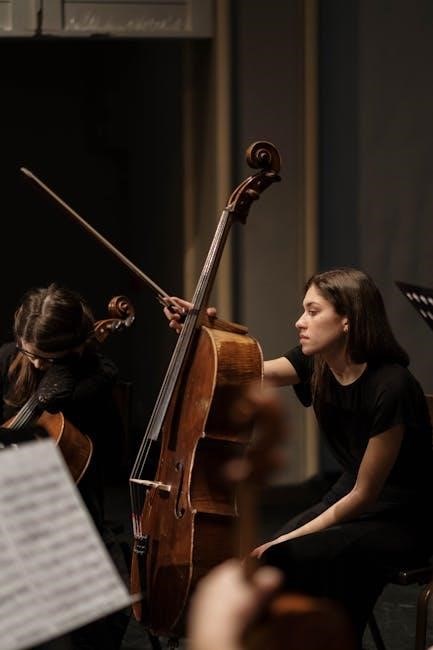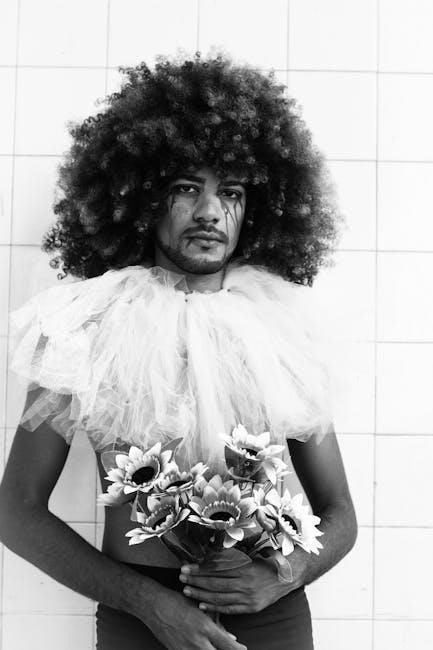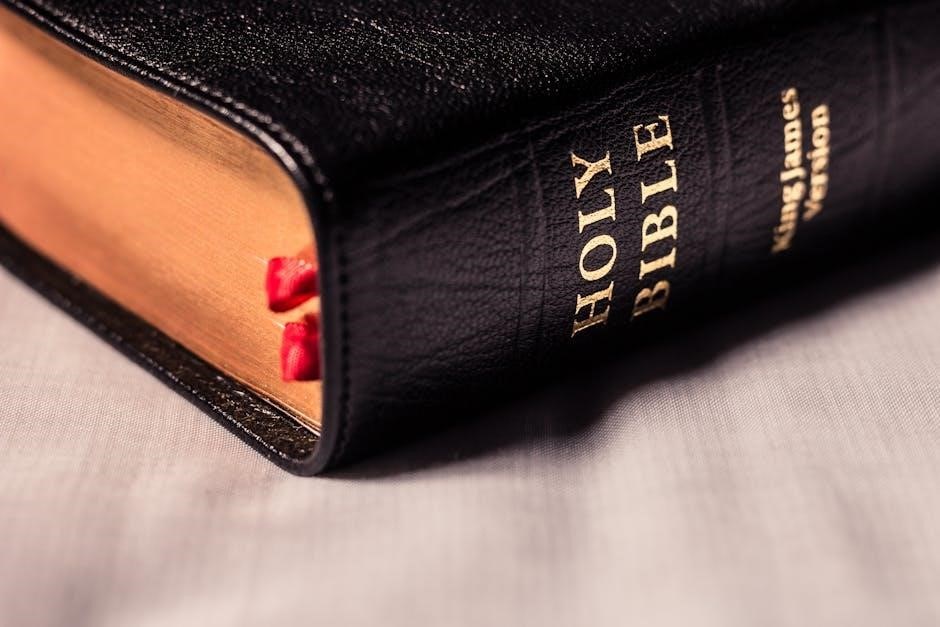Umrah, a sacred minor pilgrimage in Islam, offers spiritual renewal and closeness to Allah. This guide provides step-by-step instructions and essential duas for a fulfilling experience.
What is Umrah?
Umrah, often called the “minor pilgrimage,” is a sacred Islamic ritual that can be performed at any time of the year, except during the five days of Hajj. It involves key rituals such as donning Ihram, performing Tawaf around the Kaaba, completing Sa’i between Safa and Marwa, and trimming or shaving hair. Unlike Hajj, Umrah is not obligatory but is highly recommended as a Sunnah. It is a deeply spiritual journey that cleanses the soul, expiates sins, and strengthens one’s connection to Allah. Umrah is a simpler and shorter pilgrimage compared to Hajj, yet it holds significant religious and emotional value for Muslims worldwide.
Significance of Umrah in Islam
Umrah holds profound spiritual and religious significance in Islam, serving as a means to seek Allah’s forgiveness, mercy, and blessings. It is a Sunnah of the Prophet Muhammad (peace be upon him) and is considered a lesser pilgrimage compared to Hajj. Performing Umrah demonstrates devotion, humility, and submission to Allah’s will. It is believed to cleanse the soul, expiate sins, and strengthen one’s faith. Umrah also provides an opportunity for Muslims to reconnect with Islamic history and the holy sites of Makkah and Madinah. Its significance lies in its spiritual benefits and its role in fostering a deeper connection with Allah.
When Can Umrah be Performed?
Umrah can be performed at any time of the year except during the five days of Hajj, as performing it then is considered makruh. It is a highly recommended act of worship that can be undertaken individually or in groups. While Umrah is not obligatory, it is strongly encouraged for those who have the means and ability. Pilgrims can choose to perform Umrah during Ramadan, which is considered especially rewarding, or at other times convenient for them. The flexibility in timing makes Umrah accessible to Muslims worldwide, allowing them to fulfill this sacred ritual according to their personal circumstances and preferences.
Preparation for Umrah
Preparation for Umrah involves seeking knowledge, making sincere intentions, and ensuring physical and mental readiness. It includes spiritual reflection, health precautions, and packing essentials for the journey.
Understanding the Requirements
Understanding the requirements for Umrah is crucial for a valid and blessed pilgrimage. It involves knowing the essential steps, such as donning Ihram at the designated Meeqat points, performing Ghusl and Wudhu before wearing Ihram garments, and avoiding prohibited actions during the sacred state. Men must wear two unsewn white cloths, while women should dress modestly without covering their faces. Pilgrims must also be aware of the rituals, including Tawaf, Sa’i, and trimming or shaving hair upon completion. Ensuring halal earnings and maintaining sincere intentions are also vital. Proper preparation and adherence to these guidelines ensure a spiritually fulfilling Umrah experience.
Documentation and Visa Process
Obtaining the correct documentation and visa is essential for performing Umrah. Pilgrims must apply for a Saudi Umrah visa, which typically requires a valid passport, recent passport-sized photos, and a completed application form. Additional documents, such as proof of vaccination (e.g., COVID-19), may be required. The visa process usually takes a few days, but applying early is recommended to avoid delays. Ensure all documents are valid and up-to-date. Some countries may have specific requirements, so checking with the Saudi embassy or consulate is advised. A valid visa ensures a smooth entry into Saudi Arabia for the pilgrimage.
Health and Vaccination Requirements
Health and vaccination requirements are critical for a safe Umrah journey. Pilgrims must ensure they are vaccinated against diseases such as meningococcal meningitis and seasonal influenza. Additional vaccinations may be recommended based on individual health conditions. It is essential to comply with Saudi Arabia’s health regulations, which may include providing proof of vaccination upon arrival. Pilgrims should also carry personal medications and consult their healthcare provider before traveling. Staying updated on the latest health guidelines ensures a safe and healthy pilgrimage experience. Adhering to these requirements helps protect both the pilgrim and the community during the sacred journey.
Financial Preparation
Financial preparation is crucial for a smooth Umrah experience; Pilgrims should budget for flights, accommodation, food, and transportation. Additional costs include Ihram clothing, sacrificial animals (if applicable), and Zamzam water. Emergency funds should be allocated for unforeseen expenses. It is recommended to avoid overspending and prioritize essential expenditures. Using halal earnings for Umrah ensures the journey’s purity. Pilgrims should also consider saving money in advance to cover all expenses without financial strain. Proper budgeting and planning help focus on the spiritual aspects of the pilgrimage, ensuring a peaceful and fulfilling experience.

The Ihram Ceremony
The Ihram ceremony marks the beginning of the Umrah pilgrimage, symbolizing purity and intention. Pilgrims prepare by cleansing, donning Ihram garments, and reciting Talbiyah.
What is Ihram?
Ihram is a sacred state of purity and devotion for Hajj or Umrah. It begins at Meeqat with a solemn intention, wearing specific garments: two unstitched white cloths for men and modest attire for women. Ihram signifies unity and equality among pilgrims, setting aside worldly concerns to focus on worship. It involves avoiding certain actions like hunting or trimming nails, ensuring a spiritual mindset. Ihram is a fundamental step, preparing pilgrims physically and spiritually for the rituals ahead, fostering humility and connection with divine purpose during the pilgrimage.
Preparing for Ihram
Preparing for Ihram involves purifying oneself physically and spiritually. It is recommended to remove unwanted hair, trim nails, and perform Ghusl (ritual bath) and Wudhu (ablution). Men are encouraged to apply perfume to their bodies and hair before donning Ihram garments. These steps ensure a state of cleanliness and readiness for the sacred pilgrimage. Intentionally avoiding acts that invalidate Ihram, such as hunting or cutting plants, is also crucial. This preparation reflects the holistic nature of Umrah, blending physical acts with spiritual mindfulness to honor the divine journey ahead.
Wearing Ihram Garments
Wearing Ihram garments is a symbolic act of humility and equality. Men don two unsewn white cloths, known as Ihram, while women wear modest, permissible attire. Men must not cover their heads or faces, though women may cover their hair and face with a hijab or veil. The garments signify unity among pilgrims and a departure from worldly vanity. Upon wearing Ihram, pilgrims must recite the Talbiyah prayer, expressing their intention to perform Umrah. This act marks the official start of the sacred journey, reminding pilgrims of their commitment to spiritual devotion and adherence to Ihram rules throughout the pilgrimage.
Talbiyah ⎼ The Ihram Prayer
Talbiyah is a sacred prayer recited after donning Ihram, expressing submission to Allah’s will. Men recite it aloud, while women do so softly. The prayer begins with “Labbaik, Allāhumma Labbaik” (“Here I am, O Allah, here I am”) and continues with praises and supplications. It is repeated at key moments, such as approaching Makkah and during rituals. Talbiyah signifies the pilgrim’s intention to perform Umrah and their readiness to surrender to divine commands. Reciting it with sincerity and focus enhances the spiritual experience, connecting the heart to Allah throughout the journey. This prayer is a cornerstone of the Umrah rituals, reflecting devotion and humility.

Rituals of Umrah
Umrah involves key rituals: Tawaf (circumambulating the Kaaba), Sa’i (running between Safa and Marwa), and trimming or shaving hair. These acts fulfill the pilgrimage’s spiritual obligations.
Entering the Holy Mosque (Masjid al-Haram)
Entering Masjid al-Haram requires reverence and proper etiquette. Pilgrims should make the intention to visit the mosque for worship, perform Wudu (ablution), and dress modestly. Upon entering, recite the recommended dua: “Allahummaghfir li dhanbi, waftah li abwaba rahmatika” (O Allah, forgive my sins and open the gates of Your mercy for me). Walk calmly, avoiding disturbances, and proceed to the Kaaba for Tawaf. Maintain focus on worship and respect the sanctity of the holy site. This act marks the beginning of the Umrah rituals, setting the tone for a spiritually enriching experience.
Performing Tawaf (Circumambulation)
Tawaf is a central ritual of Umrah, involving seven anticlockwise circuits around the Kaaba. Begin by facing the Black Stone, raise hands in supplication, and recite the Tawaf intention. Men are encouraged to perform the first three circuits briskly (Raml). Touch the Black Stone with the right hand at each circuit, saying “Bismillahi Allahu Akbar” (In the name of Allah, Allah is the Greatest). Recite Quranic verses or supplications during the rounds. After completing seven circuits, end with a final dua near the Maqam Ibrahim. Tawaf symbolizes unity with all worshippers and devotion to Allah, embodying the harmony of faith and submission.
Praying at Maqam Ibrahim
After completing Tawaf, pilgrims proceed to Maqam Ibrahim, a sacred site near the Kaaba. Here, they perform two rak’ahs of voluntary prayer. This act honors Prophet Ibrahim, who stood on the stone during the Kaaba’s construction. The prayer is recommended but not obligatory. Pilgrims should face the Kaaba, recite Surah Al-Kafirun in the first rak’ah and Surah Al-Ikhlas in the second. The footprints on the stone, believed to be those of Ibrahim, serve as a reminder of his devotion. If the area is crowded, praying elsewhere in the mosque is acceptable. This ritual deepens the spiritual connection to Islamic heritage.
Drinking Zamzam Water
Drinking Zamzam water is a recommended act during Umrah, as it is considered a blessed and miraculous water from the well of Zamzam. Pilgrims should drink it with the intention of seeking Allah’s blessings for health and spiritual purification. It is advised to recite the appropriate dua before drinking, such as “Bismillah” and a prayer for guidance and forgiveness. Zamzam water is also used for ablution or wiping the face for its believed therapeutic benefits. Moderation is key, as overconsumption may cause discomfort during the rituals. This act strengthens one’s connection to Islamic traditions and the sacred history of the Kaaba.
Performing Sa’i (Running Between Safa and Marwa)
Sa’i is a pivotal ritual in Umrah, symbolizing Hagar’s search for water. Pilgrims begin at Safa, reciting specific duas, then proceed to Marwa, repeating this seven times. The ritual commemorate Hagar’s trust in Allah and the discovery of Zamzam water. Between the green markers, pilgrims walk briskly, reflecting on divine mercy and provision. This act strengthens spiritual connection and reflects historical faith, embodying trust and reliance on Allah’s grace.
Trimming or Shaving Hair
After completing Sa’i, pilgrims conclude Umrah by trimming or shaving their hair. Men typically shave their heads, while women trim a small portion. This act signifies the end of the Ihram state, allowing a return to normal life. It is a symbolic gesture of humility and surrender to Allah’s will. The shaving or trimming is done with gratitude, marking the fulfillment of the Umrah rituals. This step is essential for pilgrims to officially exit the sacred state and resume daily activities, reflecting spiritual renewal and obedience to divine commands.
Final Duas and Prayers
After completing the Umrah rituals, pilgrims are encouraged to offer heartfelt duas and prayers. These are moments of deep connection with Allah, seeking forgiveness, mercy, and guidance. Many choose to pray near the Kaaba or at Maqam Ibrahim, invoking blessings for themselves, their families, and loved ones. Specific supplications include the “Duas of Completion,” expressing gratitude for the opportunity to perform Umrah and asking for spiritual growth. These final prayers mark the culmination of the pilgrimage, reinforcing its purpose of strengthening faith and fostering a deeper relationship with the Almighty.

Duas and Supplications
Duas and supplications are integral to Umrah, offering moments to seek Allah’s mercy and guidance. Recited during Tawaf, Sa’i, and other rituals, they deepen spiritual connection and devotion.
Essential Duas for Umrah
Reciting essential duas during Umrah enhances its spiritual significance. The Talbiyah, recited upon donning Ihram, expresses submission to Allah. During Tawaf, supplications like Rabbana wa lakal-hamd are recommended. The dua for Sa’i, seeking Allah’s mercy, is also vital. After completing Umrah, a final supplication, thanking Allah and seeking blessings, is customary. These prayers, rooted in Islamic tradition, deepen the pilgrim’s connection to Allah and fulfill the rituals with sincerity and devotion.
Supplications During Tawaf
During Tawaf, pilgrims are encouraged to recite specific supplications that reflect humility and devotion. The recommended dua upon reaching the Kaaba is “Rabbana wa lakal-hamd, Rabbana wa lakal-shukr” (Our Lord, praise belongs to You, and thanks are due to You). As one circles the Kaaba, supplications like “Subhanallah”} (Glory be to Allah) and “Allahu Akbar”} (Allah is the Greatest) are recited. Pilgrims also invoke blessings upon the Prophet Muhammad (peace be upon him) and seek forgiveness. These supplications, rooted in Islamic tradition, emphasize the spiritual connection and sincerity of the pilgrim during this sacred ritual.
Duas During Sa’i
During Sa’i, the ritual of running between Safa and Marwa, specific supplications enhance the spiritual experience. Begin at Safa with “Allahu Akbar” (Allah is the Greatest) and “La ilaha illallahu” (There is no god but Allah). As you proceed, recite the Prophet’s supplication: “Rabb ighfir warham wa anta khairur rahimin” (O Lord, forgive and have mercy; You are the best of the merciful). Pilgrims also invoke blessings and seek guidance, reflecting on the Prophet Ibrahim’s (AS) devotion. Completing the seventh lap at Marwa seals the ritual, emphasizing gratitude and humility. These supplications, rooted in tradition, deepen the spiritual connection during Sa’i.
Final Duas After Completing Umrah
After completing Umrah, pilgrims are encouraged to offer heartfelt supplications. Recite “Allahu Akbar” (Allah is the Greatest) and “Alhamdulillah” (Praise be to Allah) to express gratitude. Seek forgiveness with “Astaghfirullah” (I seek Allah’s forgiveness) and ask for blessings with “Rabbana atina fid-dunya hasanatan wa fil-akhirati hasanatan wa qina adhaban-nar” (Our Lord, grant us good in this world and good in the Hereafter and protect us from the torment of the Fire). These final supplications are a moment of spiritual reflection, emphasizing humility and devotion. Pilgrims often make personal duas, seeking guidance, health, and prosperity, concluding their Umrah journey with sincerity and hope.
Additional Aspects
Visiting Medina is optional but highly recommended. Observing proper etiquettes, such as respecting holy sites and maintaining modesty, enhances the spiritual experience of Umrah.
Visiting Medina (Optional)
Visiting Medina, the Prophet’s city, is a cherished option for many pilgrims. The Prophet’s Mosque, a sacred site, offers immense spiritual blessings. Pilgrims often visit the Prophet’s grave and Jannatul Baqi. Plan your trip with reputable services and respect local customs for a meaningful experience.
Etiquettes and Manners During Umrah
Observing proper etiquette and manners during Umrah is essential to uphold its sanctity. Keep your heart and mind focused on worship, avoiding worldly distractions. Maintain modesty in dress and behavior, ensuring respect for all pilgrims. Refrain from harming others physically or verbally, and avoid unnecessary disputes. Be mindful of personal hygiene and cleanliness in holy sites. Remember to lower your voice in mosques and avoid overcrowding. Show kindness and compassion to fellow pilgrims, especially the elderly and disabled. By adhering to these etiquettes, you ensure a spiritually enriching and respectful experience for yourself and others.

Practical Tips
Stay hydrated, manage crowds wisely, and pack essentials like a small Quran and prayer mat. Choose a reliable travel package and ensure all documents are ready.
Choosing the Right Travel Package
Selecting a suitable travel package is crucial for a smooth Umrah experience. Ensure the package includes proper accommodation near holy sites, reliable transportation, and guided tours. Verify the credibility of the travel agency and read reviews from previous pilgrims. Opt for packages that offer comprehensive services, including visa assistance and spiritual guides. Some packages also provide additional amenities like meals and health support. It’s essential to compare prices and services to find the best fit for your needs and budget. A well-chosen package ensures comfort and focus on spiritual goals during your pilgrimage.
Staying Hydrated and Healthy
Staying hydrated and healthy is vital during Umrah, especially in Makkah’s hot climate. Drink plenty of water throughout the day, particularly before and after rituals like Tawaf and Sa’i. Pack light, nutritious meals and snacks to maintain energy levels. Avoid overexertion and take regular breaks in shaded areas. Ensure vaccinations and health screenings are up to date before traveling. Carry a first-aid kit with essentials like pain relievers and band-aids. Adhere to health guidelines provided by Saudi authorities to prevent illness. Prioritize rest and maintain personal hygiene to avoid fatigue and infections during your pilgrimage.
Managing Crowds and Time Effectively
Managing crowds and time is crucial for a smooth Umrah experience. Plan your visits to the Holy Mosque during off-peak hours, such as early mornings or late nights, to avoid congestion. Use navigation apps to identify less crowded routes and prayer areas. Prioritize key rituals like Tawaf and Sa’i, and allocate sufficient time for each. Stay patient and calm in crowded areas, avoiding unnecessary delays. Consider using technology, such as crowd-tracking apps, to stay informed about real-time crowd levels. Effective time management ensures you can perform all rituals comfortably and make the most of your spiritual journey.

Common Mistakes to Avoid
- Violating Ihram rules, such as covering the face or head for men.
- Not following proper rituals, like skipping Tawaf or Sa’i.
- Ignoring health and safety guidelines, leading to illness.
Violating Ihram Rules
Violating Ihram rules is a serious mistake during Umrah. Common violations include covering the face or head for men, as Ihram garments must remain uncovered. Women should not cover their faces or hands during Ihram. Additionally, actions like hunting, cutting nails, or removing hair are prohibited. Intentional violations invalidate the Ihram, requiring sacrifices or repetitions of rituals. Pilgrims must ensure adherence to these rules to maintain the sanctity of their Umrah. Neglecting these guidelines can lead to spiritual and procedural consequences, emphasizing the importance of strict compliance with Ihram etiquette.
Not Following Proper Rituals
Not adhering to the prescribed rituals of Umrah can lead to incomplete or invalid performances. Common mistakes include omitting essential steps like Tawaf, Sa’i, or the final shaving of hair. Pilgrims must ensure they follow the correct sequence and supplications for each ritual. Neglecting to face the Kaaba during Tawaf or failing to recite the Talbiyah properly can also lead to spiritual shortcomings. It is crucial to seek guidance from reliable sources or scholars to avoid such errors. Strict adherence to the Sunnah and Islamic guidelines ensures the Umrah is performed meaningfully and correctly, maximizing its spiritual benefits and acceptance.
Ignoring Health and Safety
Ignoring health and safety precautions during Umrah can lead to discomfort or even serious complications. Pilgrims often overlook essential vaccinations and medical advice, putting themselves at risk. Failing to stay hydrated in crowded and hot conditions can result in dehydration or heatstroke. Additionally, neglecting personal hygiene and not managing physical fatigue can exacerbate health issues. It is crucial to follow health guidelines, such as wearing comfortable footwear and avoiding overexertion during rituals like Tawaf and Sa’i. Prioritizing health ensures a safe and spiritually fulfilling experience, allowing pilgrims to focus on worship without unnecessary challenges.
Umrah is a transformative journey, offering spiritual renewal and divine blessings. By following proper rituals and preparations, pilgrims can maximize their experience, seeking Allah’s mercy and grace.
Final Thoughts on Performing Umrah
Performing Umrah is a profound act of worship that strengthens one’s connection with Allah. It is essential to approach this journey with sincerity, adhering to the Sunnah and proper rituals. Pilgrims should reflect on their intentions, seeking spiritual growth and divine mercy. The experience fosters humility, gratitude, and a deeper understanding of faith. By following the step-by-step guide and preparing thoroughly, one can ensure a meaningful and blessed Umrah. Remember, the journey is not just physical but also a spiritual cleansing, offering opportunities for forgiveness and renewed commitment to Allah’s path. May your Umrah be a source of lasting inspiration and peace.
Benefiting Spiritually from Umrah
Performing Umrah offers profound spiritual benefits, allowing pilgrims to reconnect with Allah and seek forgiveness. The sacred rituals of Ihram, Tawaf, and Sa’i cleanse the heart and soul, fostering humility and submission. Umrah provides an opportunity for self-reflection, enabling pilgrims to strengthen their faith and renew their commitment to a righteous life. The experience is a means of spiritual detox, helping believers detach from worldly distractions and focus on their divine purpose. By sincerely performing Umrah, one can attain inner peace, divine mercy, and a deeper connection to Allah, returning home with a rejuvenated spirit and a renewed sense of purpose.



